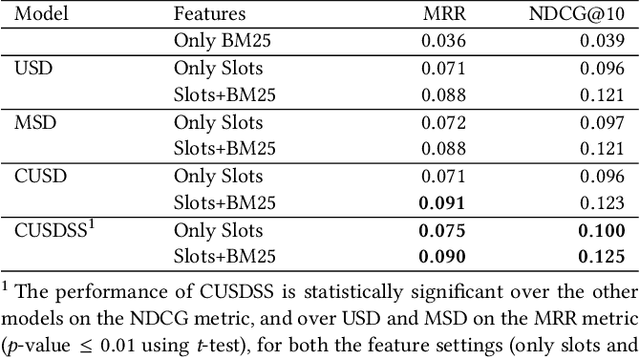Distant-Supervised Slot-Filling for E-Commerce Queries
Paper and Code
Dec 15, 2020



Slot-filling refers to the task of annotating individual terms in a query with the corresponding intended product characteristics (product type, brand, gender, size, color, etc.). These characteristics can then be used by a search engine to return results that better match the query's product intent. Traditional methods for slot-filling require the availability of training data with ground truth slot-annotation information. However, generating such labeled data, especially in e-commerce is expensive and time-consuming because the number of slots increases as new products are added. In this paper, we present distant-supervised probabilistic generative models, that require no manual annotation. The proposed approaches leverage the readily available historical query logs and the purchases that these queries led to, and also exploit co-occurrence information among the slots in order to identify intended product characteristics. We evaluate our approaches by considering how they affect retrieval performance, as well as how well they classify the slots. In terms of retrieval, our approaches achieve better ranking performance (up to 156%) over Okapi BM25. Moreover, our approach that leverages co-occurrence information leads to better performance than the one that does not on both the retrieval and slot classification tasks.
 Add to Chrome
Add to Chrome Add to Firefox
Add to Firefox Add to Edge
Add to Edge